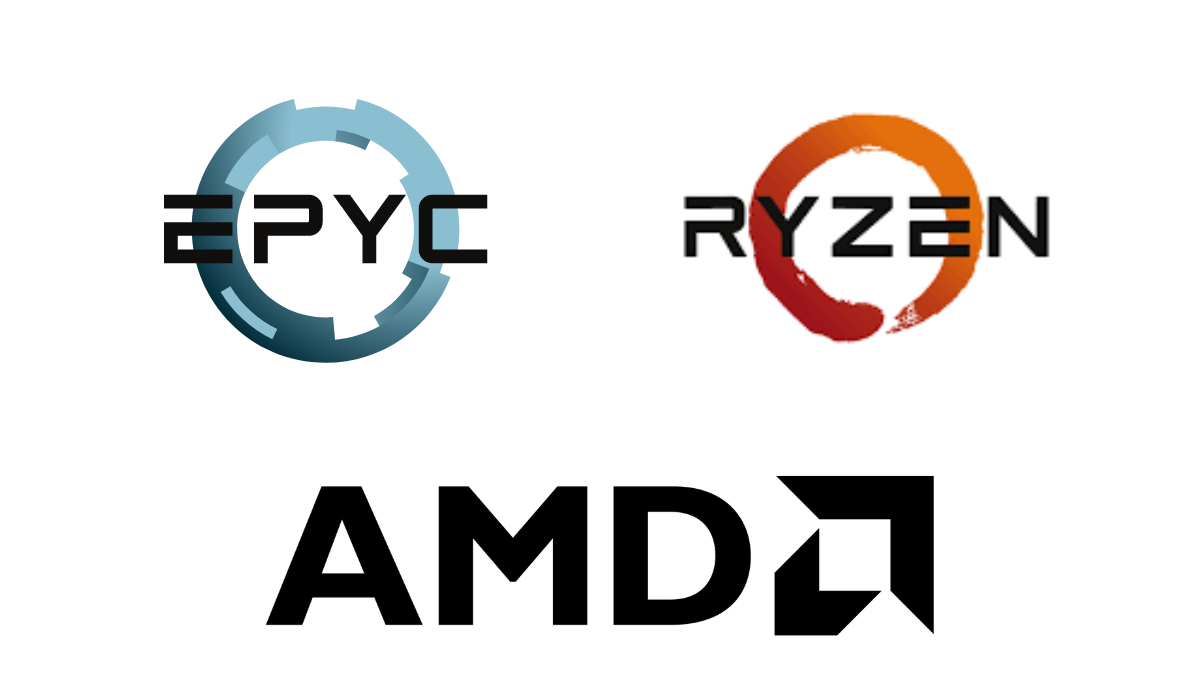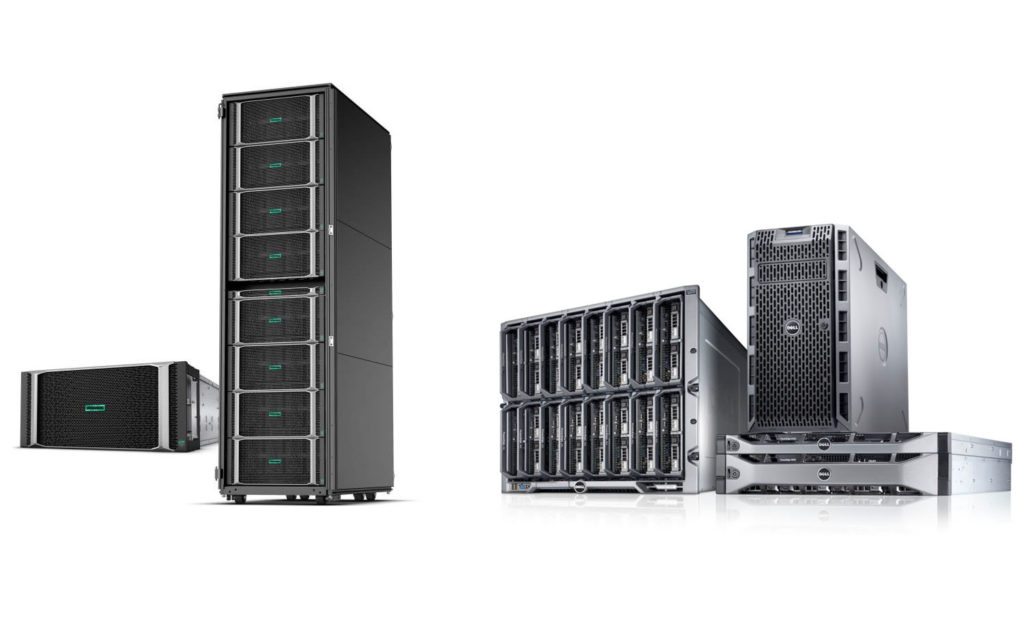AMD has been making waves in the CPU market with its Ryzen and EPYC processors, which offer superior performance and value compared to their Intel counterparts. The company’s focus on increasing core counts, boosting clock speeds, and improving architecture have resulted in processors that cater to a wide range of users – from gamers to content creators to data center operators. In this blog, we’ll look at the best AMD processor available and what makes them a top choice for power-packed processing.
So if you’re in the market for a new processor, keep reading to find out which one suits your needs best.
Understanding AMD Processors
AMD processors are based on a modular architecture called Zen. This architecture allows for better performance and efficiency compared to previous designs. Zen architecture uses a multi-threaded approach, which can handle more tasks simultaneously, improving overall performance.
AMD processors feature advanced technologies such as Precision Boost, which dynamically adjusts clock speeds to provide optimal performance depending on workload demands. AMD processors also have a high core count, allowing for more processing power and improved multitasking capabilities.
AMD’s Ryzen processors are designed for consumers and offer exceptional performance and value for gaming and content creation tasks. In contrast, AMD’s EPYC processors are designed for server-grade applications and are optimized for high-performance computing, cloud computing, and virtualization. EPYC processors have a higher core count and support up to eight memory channels, making them ideal for enterprise-level applications.
Unleashing the Power of AMD Ryzen Processors
The AMD Ryzen series features multi-core processors that perform better than their Intel counterparts. One of the main benefits of using AMD Ryzen processors is their ability to handle multiple tasks efficiently. The processors come with a higher core count, allowing more threads to be processed simultaneously. This feature improves speed and allows for smoother multitasking, making them ideal for heavy workloads such as video editing and gaming.
Another advantage of AMD Ryzen processors is that they support higher clock speeds than Intel processors. This means that they can complete tasks faster, resulting in improved performance. Additionally, the processors come with a larger cache which helps reduce latency and improve data transfer rates.
When comparing Ryzen processors, it’s essential to consider factors such as core count, clock speed, cache, and performance. The Ryzen 3 series, for example, has four cores and four threads with base clock speeds ranging from 3.6 GHz to 4.0 GHz. The Ryzen 5 series, on the other hand, has six to eight cores and twelve to sixteen threads with base clock speeds ranging from 3.7 to 4.6 GHz. For those who need even more power, the Ryzen 7 and Ryzen 9 series offer up to 16 cores and 32 threads with base clock speeds ranging from 3.0 GHz to 4.9 GHz.
The Top AMD Ryzen Processors
AMD Ryzen processors are known for their exceptional performance and versatility. With so many options, knowing which one is right for your needs can be challenging. Here’s an in-depth analysis of the top AMD Ryzen processors for various use cases.
Gaming Enthusiasts:
The Ryzen 9 5950X is the ideal processor for gaming enthusiasts who need the most power possible. It has a core count of 16 and 32 threads, a base clock speed of 3.4 GHz, and a boost clock speed of up to 4.9 GHz. This processor is perfect for running resource-intensive games at high settings with ease.
Content Creators
For those who create content such as video editing or graphic design, the Ryzen 7 5800X is a top pick. It has eight cores and 16 threads, a base clock speed of 3.8 GHz, and a boost clock speed of up to 4.7 GHz. This processor is excellent for handling complex projects and multitasking without lag or delay.
Budget-Friendly Options:
The Ryzen 5 5600X is an excellent option for those on a budget. It has six cores and 12 threads, a base clock speed of 3.7 GHz, and a boost clock speed of up to 4.6 GHz. Despite its affordable price point, this processor offers solid performance that can handle basic gaming and productivity tasks.
Regarding performance benchmarks, all three of these processors rank highly and offer excellent value for their respective price points. The Ryzen 9 5950X and Ryzen 7 5800X outperform many Intel processors in single and multi-threaded tasks. The Ryzen 5 5600X, while not as powerful as its counterparts, offers a significant boost in performance compared to previous Ryzen processors.
Exploring the World of AMD EPYC Processors
AMD EPYC is explicitly designed for data centers and enterprise environments. These processors offer a range of advantages that make them a popular choice among businesses. One of the key advantages of using AMD EPYC processors is that they can handle more tasks simultaneously, making them ideal for use in high-performance computing environments. Additionally, AMD EPYC processors offer improved memory bandwidth, which allows data to be processed more quickly and efficiently.
Another advantage of using AMD EPYC processors is their energy efficiency. These processors are designed to consume less power than competing processors, which can lead to significant cost savings over time. Additionally, AMD EPYC processors offer support for various virtualization technologies, including VMware, Hyper-V, and KVM, making them a versatile choice for businesses.
In terms of specifications, AMD EPYC processors offer up to 64 cores and 128 threads, along with support for up to 4TB of memory. They also feature PCIe 4.0 support, which offers faster data transfer speeds than previous generations of PCIe technology.
When you’re ready to upgrade your data center with high-core-count AMD EPYC processors, you can maximize your budget by choosing to sell old server equipment that is no longer meeting your performance needs.
The Top AMD EPYC Processors
AMD EPYC processors are popular for server applications due to their impressive performance and versatility.
High-Performance Computing
AMD EPYC 7763 is an excellent option with 64 cores and 128 threads. This processor offers exceptional parallel processing capabilities, making it an ideal choice for scientific simulations and other computationally intensive tasks.
Virtualization and Cloud Computing
AMD EPYC 7643 is hard to beat with its 48 cores and 96 threads. This processor can handle multiple virtual machines and workloads with ease. It also features support for PCIe Gen 4, providing high-speed data transfer for storage and networking connectivity.
Big Data and Analytics Applications
AMD EPYC 75F3 processor boasts 32 cores and 64 threads, making it ideal for handling large datasets and complex data analysis tasks. It also has a high memory bandwidth, which helps reduce data bottlenecks and improve overall system performance.
When comparing the performance of these processors, it is crucial to consider the specific workload each processor will be used for. Ultimately, your server application’s best AMD EPYC processor will depend on your needs and workload requirements.
Factors to Consider When Choosing an AMD Processor
When selecting an AMD processor, several factors must be considered to ensure you get the best performance and efficiency for your needs.
- Core count and threads: The number of cores and threads determines how many tasks the processor can handle simultaneously. More cores and threads mean better multitasking capabilities and improved performance. For example, the Ryzen 9 5950X has 16 cores and 32 threads, making it ideal for demanding workloads like video editing and gaming.
- Clock speed and boost technology: Clock speed refers to the speed at which the processor can execute instructions, while boost technology allows the processor to increase its clock speed when needed. Higher clock speeds and better boost technology result in faster processing power. For instance, the AMD Ryzen 7 5800X has a base clock speed of 3.8GHz and a boost clock of up to 4.7GHz.
- Cache size and memory bandwidth: Cache size determines how much data the processor can access quickly, while memory bandwidth affects the speed at which data can be transferred between the processor and memory. A larger cache size and higher memory bandwidth result in faster data access, improving overall performance. The Ryzen 9 5900X has 70 MB of cache and supports DDR4 memory with a speed of up to 3200MHz.
- Power consumption and thermal design: Choosing a processor with a lower power consumption and proper thermal design ensures your system runs efficiently without overheating. AMD processors with higher TDP (Thermal Design Power) ratings require more cooling and may consume more power, affecting overall system performance. For example, the Ryzen 5 5600X has a TDP of just 65 watts, making it energy efficient with good thermal performance.
- Compatibility and socket requirements: Compatibility with your system’s motherboard and proper socket requirements must be taken into account. Different AMD processors require different socket types, so ensuring that your processor is compatible with your system is essential. For instance, the Ryzen 7 3800XT requires an AM4 socket and supports PCIe 4.0.
Overclocking and Cooling for AMD Processors
Overclocking is a technique used to enhance the performance of your AMD processor beyond its standard specifications. It involves tinkering with the settings of your processor to achieve faster clock speeds and higher performance. By overclocking your AMD processor, you can extract more power from your processor and achieve faster processing speeds, which is particularly useful for tasks that require a lot of processing power.
However, it’s important to understand that overclocking can be dangerous and cause your processor to overheat, leading to permanent damage. Therefore, proper cooling solutions are crucial to prevent damage when overclocking an AMD processor. Superior fans, coolers, and liquid cooling solutions will help keep your system running at optimal temperature levels.
AMD Processor Technologies and Features
AMD processors have taken the computing world by storm with their cutting-edge technologies and features. Here are some of the most impressive ones:
- Precision Boost and Precision Boost Overdrive: These features enhance performance dynamically, allowing processors to run at higher clock speeds when there is more workload. This means that you get better performance when you need it most.
- Simultaneous Multithreading (SMT): SMT boosts multitasking capabilities by enabling each processor core to execute two threads simultaneously. This feature can improve overall system performance, especially when running multiple applications simultaneously.
- Infinity Fabric: This technology improves interconnectivity and data transfer speeds between processor components, such as the CPU and the GPU. With faster data transfer rates, the system can easily handle more complex tasks.
- AMD StoreMI: This feature optimizes storage performance and efficiency by combining the speed of an SSD with the capacity of a traditional hard drive. This allows lightning-fast boot times, faster application loading, and improved system responsiveness.
AMD Processor Compatibility with Operating Systems and Software
If you’re shopping for a new computer or building one from scratch, choosing the right processor can make all the difference in performance and efficiency. Luckily, AMD processors offer excellent compatibility with popular operating systems like Windows and Linux, giving you more options for your system of choice.
But it’s not just about compatibility – it’s also important to consider software optimization and support for AMD processors. The software can run faster and smoother when optimized for AMD processors, maximizing your computing experience. Examining these factors can help you make the right decision when choosing a processor for your needs.
Future Trends and Upcoming AMD Processors
As technology advances at breakneck speed, we’re left wondering what’s next in computer processors. We expect to see some notable advancements from AMD in the coming years. From faster clock speeds to improved power efficiency, the company constantly pushes the boundaries of what’s possible.
One major trend to look out for is the rise of multi-core processors, allowing users to run multiple applications simultaneously without lag or slowdown. Another trend is using machine learning algorithms, enabling more efficient processing of complex tasks. With these exciting developments just around the corner, we can’t wait to see what AMD has in store for us in the coming years!
Conclusion
After reading this guide, you’re probably itching to get your hands on the best AMD processor that fits your needs. Whether you’re a gamer, a content creator, or a business owner looking to upgrade your company’s technology, the power of AMD Ryzen and EPYC cannot be underestimated. Not only do they offer exceptional speed and performance, but they also come with advanced features that can elevate your computing experience to new heights.
And if you’re ready to upgrade, remember, you don’t have to let your old equipment go to waste. Exit Technologies is your reliable partner for selling your old processor and IT equipment at the best prices possible. So go ahead and unleash the power of AMD – you won’t regret it!



